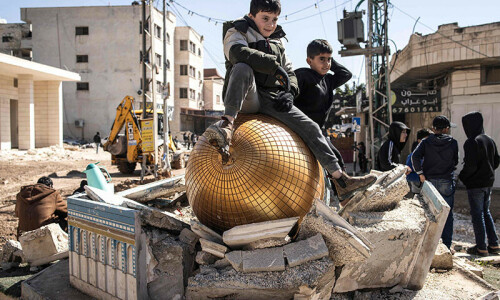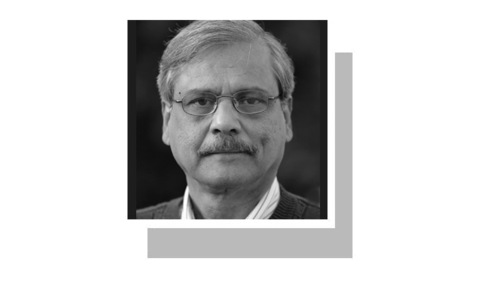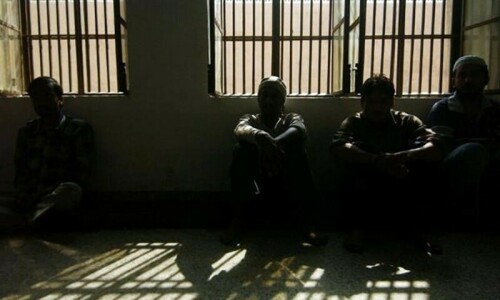 BEIJING, Sept 19: North Korea agreed on Monday to give up all of its nuclear weapons and programmes in a landmark agreement that caps two years of negotiations aimed at defusing a high-stakes crisis.
BEIJING, Sept 19: North Korea agreed on Monday to give up all of its nuclear weapons and programmes in a landmark agreement that caps two years of negotiations aimed at defusing a high-stakes crisis.
In exchange, South Korea, the United States, Japan, Russia and China — the other players in the six-party talks in Beijing — expressed willingness to provide oil and energy aid and security guarantees.
Washington and Tokyo agreed to normalise ties with the impoverished North, which pledged to rejoin the nuclear Non-Proliferation Treaty.
“The joint statement is the most important achievement in the two years since the start of six-party talks,” Chinese chief negotiator Wu Dawei said. The seven-day fourth round of talks ended with a standing ovation by all delegates.
Under the terms of the agreement, North Korea would have the right to a civilian nuclear programme if it regains international trust, resolving the main sticking point between Pyongyang and Washington.
The United States, backed by Japan, had argued that North Korea could not be trusted with atomic energy, but China, South Korea and Russia supported the position that if it scrapped its nuclear weapons and agreed to strict safeguards it could have such an energy programme in future.
Failure to reach an agreement on dismantling North Korea’s nuclear weapons programmes could have prompted Washington to take the issue to the UN Security Council and press for sanctions.
The North had said sanctions would be tantamount to war.
North Korea had demanded aid and security guarantees before it dismantled any of its nuclear programmes, but Washington and Tokyo had wanted it to verifiably dismantle first.
The six parties will hold a fifth round of talks in Beijing in November, but analysts said the issue of whether North Korea can have a light-water reaction was not yet resolved.
In Monday’s agreement, the United States affirmed it had no nuclear weapons on the Korean peninsula and had no intention to attack or invade North Korea with nuclear or conventional weapons.
PLEDGE HAILED: After the accord, the world joined US President George W. Bush in judging North Korea’s pledge to give up nuclear weapons as a “positive step”.
The head of the International Atomic Energy Association, Mohamed ElBaradei, said in Vienna that nuclear inspectors should return to North Korea as soon as possible.
“Clearly, the earlier we go back the better. This is going to be a complex inspection process,” ElBaradei said.
Chief negotiator, Hill said: “It is a big decision for them, but is absolutely the right decision for Them.”
EU foreign policy chief Javier Solana hailed North Korea’s decision as a big step toward improving stability.
“I welcome the commitment by North Korea to abandon all nuclear weapons and existing nuclear programmes and to return at an early date to the Non-Proliferation Treaty and to IAEA safeguards,” Solana said in a statement.
“This is a significant step forward for regional and global stability.”—Agencies















































